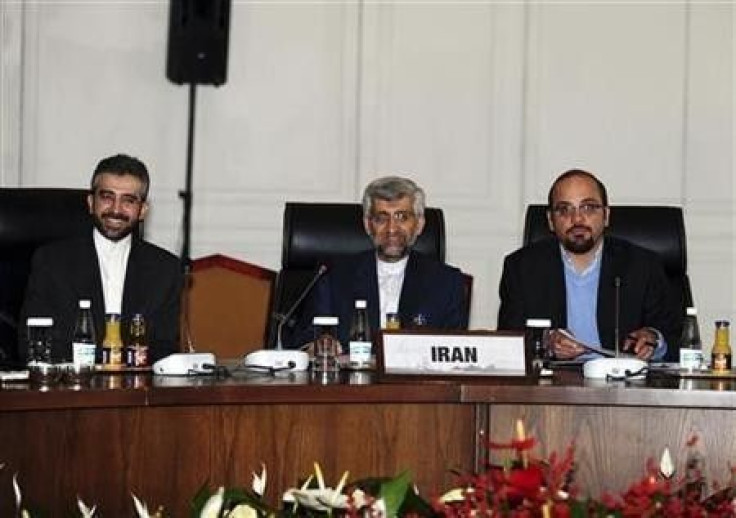West Offers to Resume Iran Nuke Talks; UN Gets Site Access

Iran on Tuesday said it will give United Nations weapons inspectors access to a secret military complex where it's believed work on a nuclear weapon may be taking place, as Western countries offered to resume talks with Tehran over its nuclear program, according to news reports.
The United States and other countries offered to return to negotiations with Iran, the European Union's foreign-policy chief, Catherine Ashton, was quoted as saying on behalf of the U.S. government and allies France, the U.K., China, Russia -- all permanent members of the U.N. Security Council -- and Germany.
News about U.N. access to Iran's Parchin facility, reported by the official ISNA news agency, comes after inspectors from the International Atomic Energy Agency, or IAEA, were banned from the site in January and February. Last year, IAEA officials wrote that Iran had built a containment chamber at Parchin to conduct tests that strongly suggested the country is seeking to produce an atomic bomb.
In 2005, IAEA inspectors visited Parchin and reported no unusual activity, but at the time they reviewed only a small part of the facility.
IAEA chief Yukiya Amano said Monday that he was concerned there was new activity at Parchin. Due to activities ... ongoing at the Parchin site, he said, going there sooner is better than later, the Associated Press reported.
According to ISNA, following repeated demands Iran was prepared to open up the facility for inspection once more. Given that Parchin is a military site, access to this facility is a time-consuming process and it can't be visited repeatedly, the agency quoted an official Iranian statement as saying.
On Tuesday, Ashton said she had responded to a February letter from Iran's top nuclear negotiator, Saeed Jalili, that offered new discussions after more than a year of stalling.
In a statement, the EU official said she hopes Iran will now enter into a sustained process of constructive dialogue which will deliver real progress in resolving the international community's long-standing concerns on its nuclear program.
Ashton wrote to Jalili that the goal of such talks would be a comprehensive negotiated, long-term solution which restores international confidence in the exclusively peaceful nature of Iran's nuclear program.
The time and locale of such talks hasn't been determined.
However, the two sides appear to be poles apart on the nuclear issue. The U.N. group has demanded that Iran halt all uranium-enrichment activities, while Iran insists it has the right to develop nuclear power and that it only wants to apply the technology for peaceful purposes such as generating electricity.
The matter also has great urgency given Israel's warnings that it won't tolerate a nuclear Iran and that it may launch a pre-emptive military strike on Iranian atomic facilities much like it has done in the past with Syria and Iraq.
U.S. President Barack Obama and other Western leaders have pleaded with Israel to refrain from such a provocative act and allow economic sanctions to force Iran into giving up its nuclear program.
Israel's fears that Iran is developing nuclear weapons is shared by the IAEA, the U.N. nuclear watchdog, which recently warned that it has serious concerns about the military nature of Tehran's atomic endeavors.
On Monday, Prime Minister Benjamin Netanyahu warned Obama that Israel wouldn't rely on diplomacy and sanctions to resolve Iran's alleged mission to build a nuclear bomb.
After an inconclusive talk with Obama at the White House, Netanyahu addressed a meeting of the influential American Israeli Public Affairs Committee, or AIPAC, warning: I will never let Israel live under the shadow of annihilation.
Invoking the Holocaust, the Israeli leader said his is the state of once-powerless and stateless people who built a strong and proud nation able to defend itself.
And ladies and gentlemen, Israel must always reserve the right to defend itself, Netanyahu said, adding that Israelis cannot accept a world in which the Ayatollahs have atomic bombs.
© Copyright IBTimes 2024. All rights reserved.











